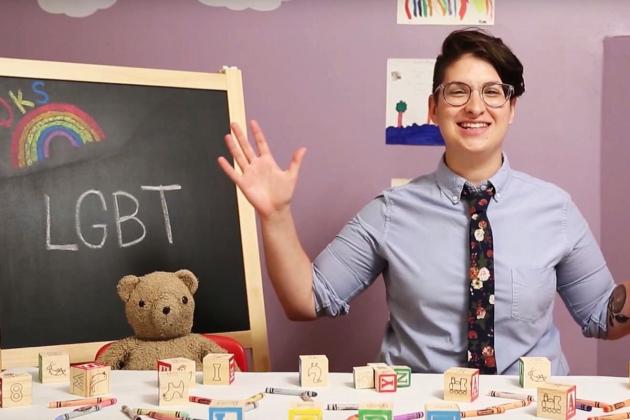
These web series, fact sheets and workshops are aimed at parents who want to have engaging conversations with their kids on consent, gender, sexuality and more
BY JAIME SIN SEPTEMBER 17, 2019 6:00 AM
In late August, Ontario’s Conservative government released a revised health and physical education curriculum. Following Doug Ford’s campaign pledge to scrap the Liberal sex-ed curriculum from 2015, a return to the 1998 lesson plan and a year of consultations, most topics from the Liberal curriculum remain, with shifts around sexual orientation, gender identity and consent.
Education around consent starts in grade 1, with the identification of genitals and what constitutes non-consensual touch. Sexual orientation is introduced in grade 5, masturbation is an optional teacher prompt in grade 6 and homophobia is brought up in grade 7. Also taught in grade 7 is the concept of sexual consent and how it’s communicated.
In terms of changes to the 2015 curriculum, gender identity and expression have been moved from grade 3 to grade 8, and mentions of LGBTQ+ families have been removed.
“Research suggests that children start discovering and articulating their gender identity around age three to five,” explains Makeda Zook, the health promotion and education officer at Action Canada, an Ottawa-based charity that promotes progressive sexual health and rights. “Removing gender identity from grade 3 and placing it in grade 8 undermines the creation of safer and supportive school environments, which are key to ensuring the health and well being of trans and gender non-binary students.”
She adds that studies show impacts of “stigma, invisibility, fear of coming out, and opportunities for discrimination and bullying can be felt by anyone in or perceived to be part of the LGBTQ+ community, including those from queer/trans families and students who express their gender outside of binary expectations.”
Notably, the Conservative government is requiring schools to develop a policy that allows parents to opt their children out of the sex-ed curriculum. When it comes to education concerning diverse gender and sexual identities, preventing homophobia, transphobia, and gender-based and sexual violence, Zook says opting kids out directly contradicts human rights that are protected provincially, federally and internationally.
Evidence supporting comprehensive sex ed has repeatedly demonstrated positive effects. In the Netherlands where sex ed starts at age four, young people are more likely to delay sexual activity and will use condoms and other contraceptives when they do become active (leading to lower rates of STI transmission and unintended pregnancies). Gender equitable attitudes, empathy and inclusiveness, positive body image and the ability to distinguish between healthy and unhealthy relationships are all promoted.
Upholding a strong sex-ed curriculum in schools is a baseline societal good. There are also a number of alternative resources for parents looking for ways to have engaging conversations with their kids, ranging from community workshops to easily accessible web series.